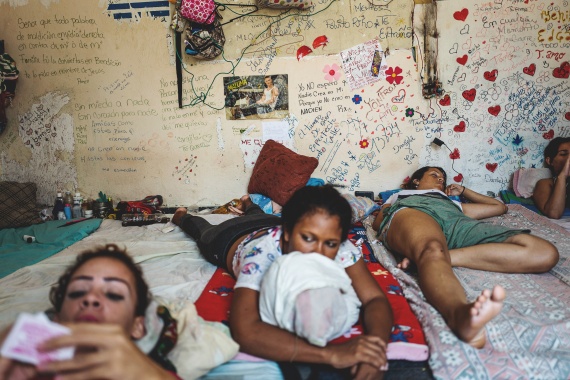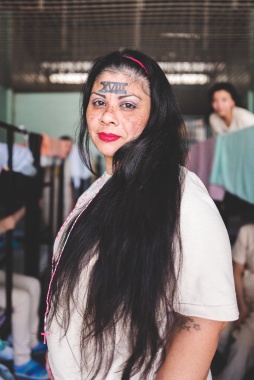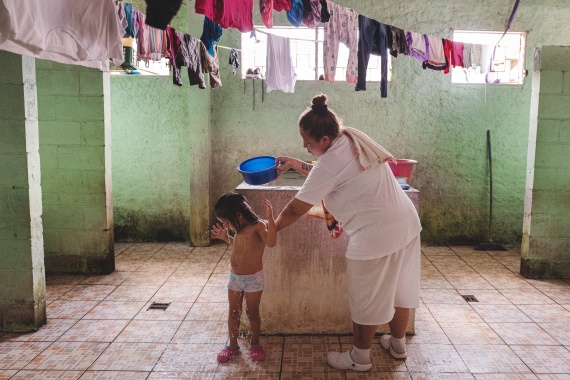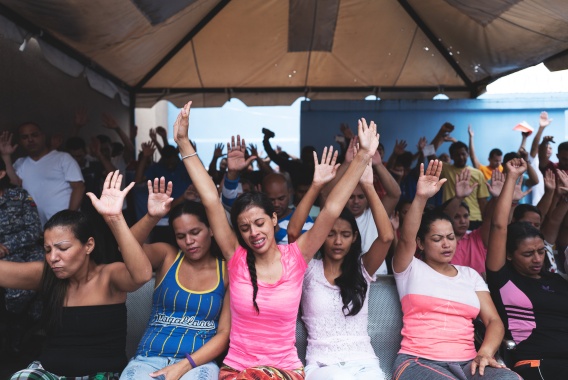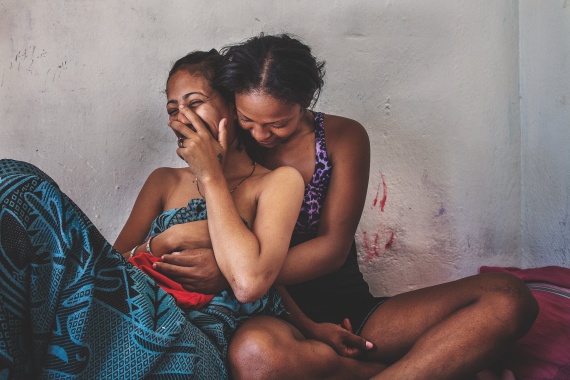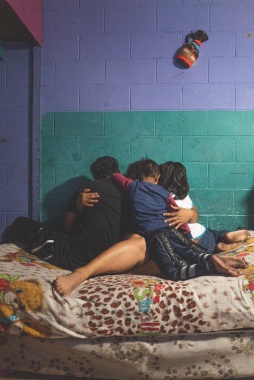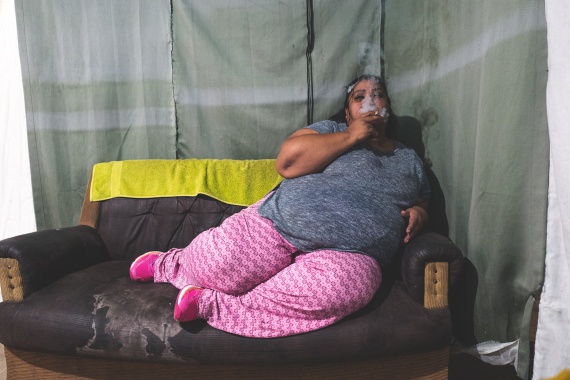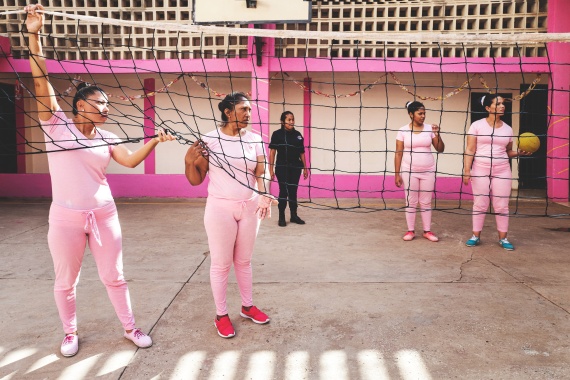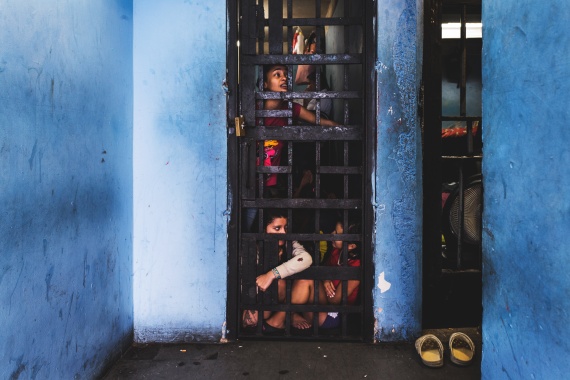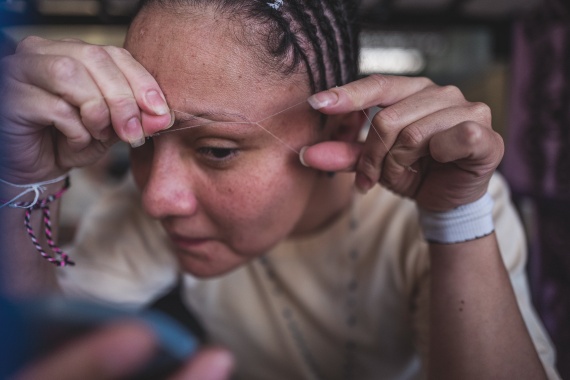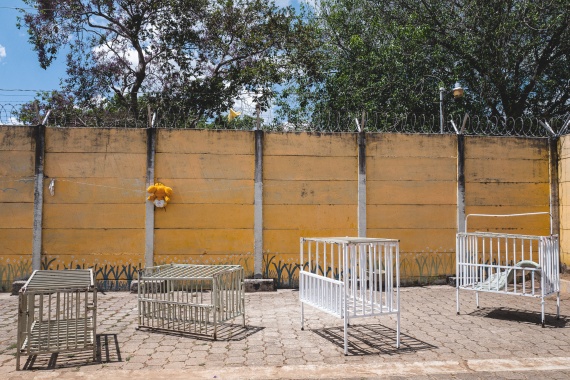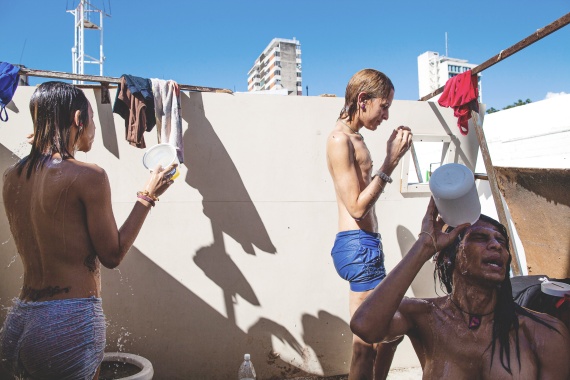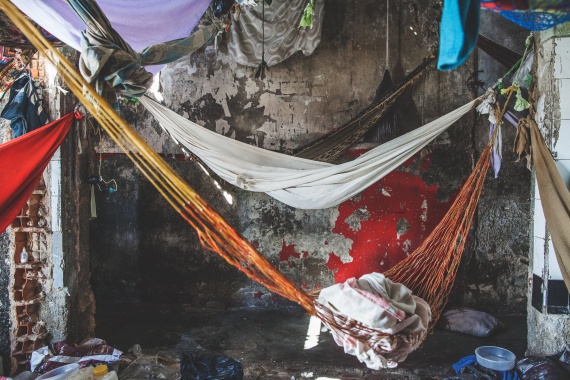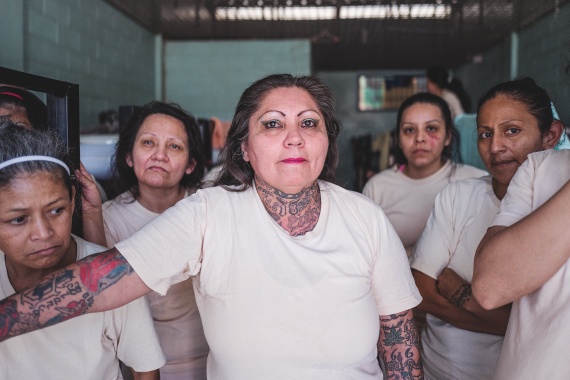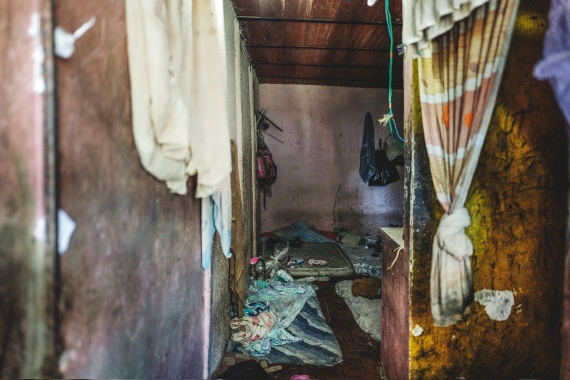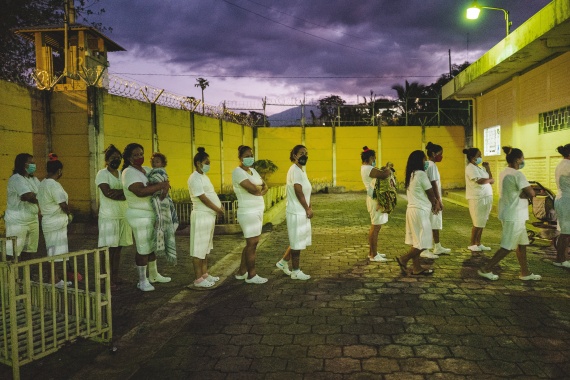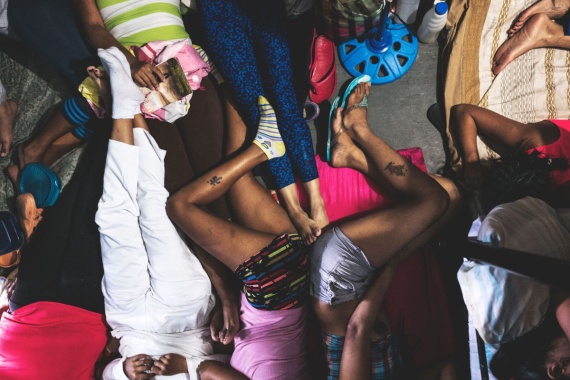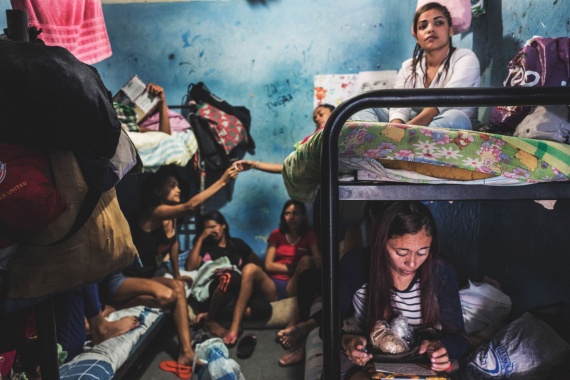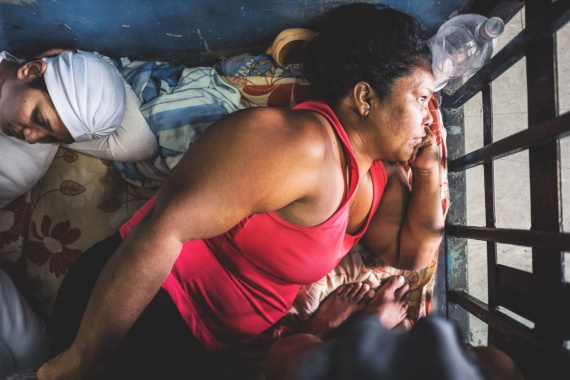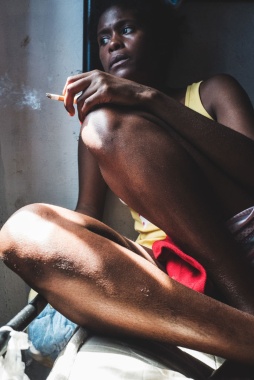Ana María Arévalo Gosen – Días Eternos (Eternal Days)
The crisis in Latin American penal systems, and the shocking reality for women inmates, stand at the centre of this emotional series. Thousands of women sit in over-crowded prisons and detention centres. They lack everything: space, hygiene, medical care and, above all, respect and justice. With empathy and visual vehemence, the Venezuelan photographer reports on the situation, in a series that has already received a number of awards.
Ana María Arévalo Gosen lived in Europe for a long time, including in France and Germany. After she returned to her home country of Venezuela, in 2017, a journalist friend told her about the undignified and inhumane living conditions in women’s prisons there. The first visit to a detention centre was a shock for the photographer, and pushed her to begin intensely documenting the untenable situation. “It is a body of work that shows evidence of one of the root causes of the crisis in Venezuela,” she explains. “The criminal justice system does not work equally for everybody. On the contrary, it takes away the rights of the poorest and most vulnerable members of society. Justice is lost in my country.”
“Imprisonment fuels crime and violence, destroys families, and affects Latin American society, through how criminals are judged, crimes are investigated, and minorities are treated.”
The pictures are very evocative: inmates lie on mats in very tight quarters; they barely have air to breathe; and can only make use of very makeshift washing facilities. At the same time, there are motifs full of solidarity and trust, amid the hardly bearable conditions of everyday life. In Venezuela, it is the pre-trial detention centres, in particular, that are largely defined by a lack of any rights. While the law decrees that a judge has 45 days to decide if a woman is to go to prison or can be set free, the state fails in its mission. The women often have to wait for months, sometimes years – eternal days – till a decision is made. The consequences are dramatic: there is not adequate care; and it is even up to the inmates’ relatives to bring them food and water. Violence, randomness and despair define daily life.
It was also not an easy or safe situation for the photographer to be in, either. “As a photojournalist, I try to take as many precautions as possible. There is always someone who knows where I am, and I have a security protocol that I have been fine-tuning, over time. And my intuition is always alert.” Trust is the basis needed to connect with the women. “I think it’s more like the primal feeling that one produces in the other; they can feel that I go with good intentions,” the photographer says, referring to encounters. “I treat them with the respect they deserve. I allow myself to feel vulnerable, honest and empathetic to their stories. I talk to them about my own experience and life. I sing with them... that honesty helps me connect with them, and this connection allows the intimacy that resonates and is felt in the images.”
“I am very angry, sad and ashamed, all of the time. At the beginning, it was hard to leave the centres without crying, and even to come back home, because of the shock. The rage is what wakes me up sometimes to work; I am so angry, I have to keep on going.”
Since 2017, the photographer has visited four prisons and eleven detention centres. She has extended her work from Venezuela to El Salvador, where she also works with women in the process of being reintroduced into society: “Who better than them to tell us about the trauma, horror and stigma of prison, and how their lives have developed since?” she says. “Through their experiences, we can understand how hard it is to carry the stigma of the prison; how difficult it is to find a dignifying job; and also, how the lack of support from the penitential system means inadequate support for women to be reintegrated into society.”
Arévalo Gosen is planning to further expand her project through other Latin American countries, where women inmates also find themselves in precarious situations. She still has a long way to go, “but for me, the project will be over once conditions have changed for the better.”
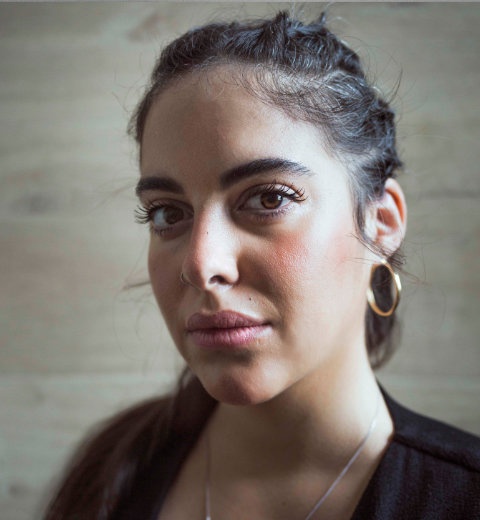
Ana María Arévalo Gosen
Born in Caracas, Venezuela, in 1988, Ana María Arévalo Gosen moved to France in 2009. She studied Photography at the ETPA Toulouse, and worked afterwards as a freelance photographer in Hamburg. Since returning to Venezuela in 2017, she has been primarily documenting the crises in the country from women’s perspectives. In 2018, she received a Women Photograph Grant; in 2019, she was nominated for the Joop Swart Masterclass; and her work on female prisons in Venezuela earned her the POY Latam Award for South American Documentary Photography. She is currently based in Bilbao, Spain.
